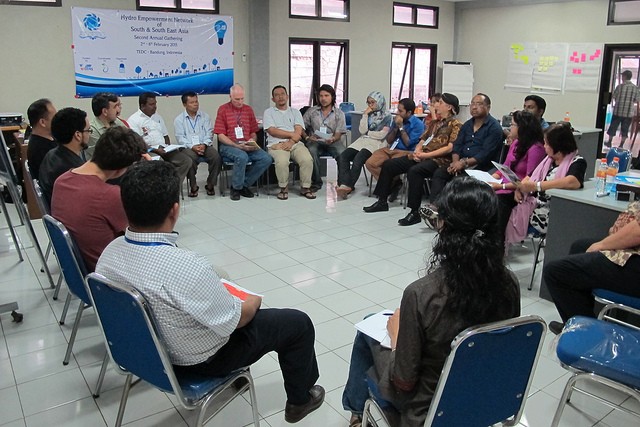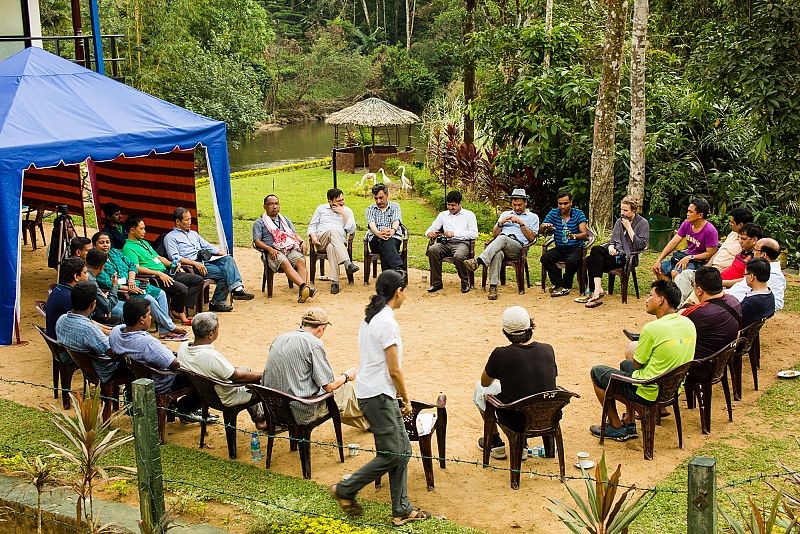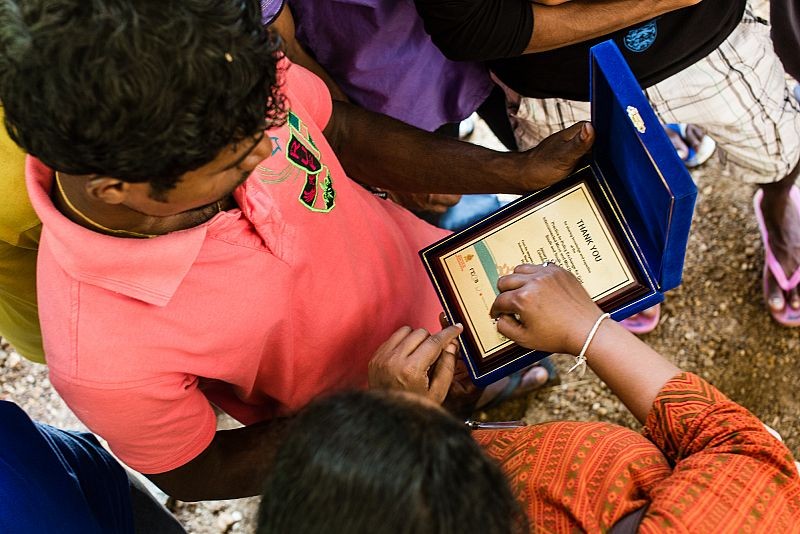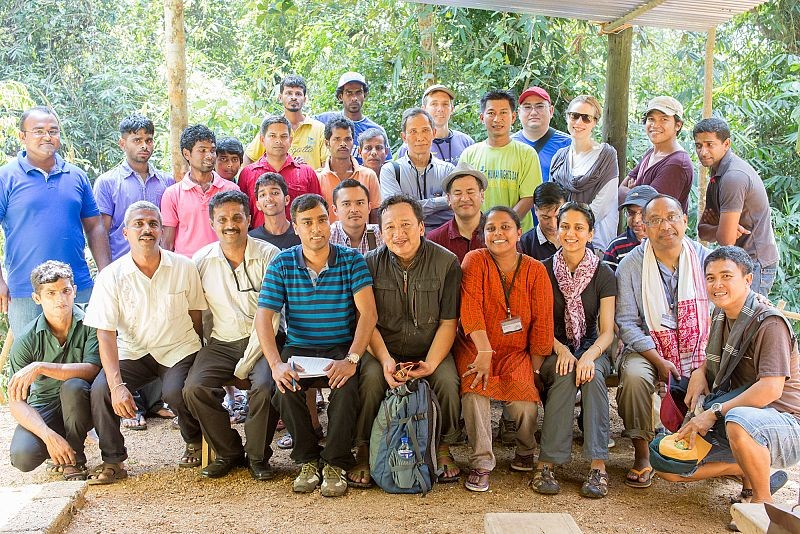This exchange activity aims to nurture knowledge exchange between multi-actors for grid-connected micro hydro technology across the region of South and Southeast Asia and to enable members of the Hydro Empowerment Network (HPNET) to operate renewable energy technologies apart from the national grid.
Exchange Need & Objective(s)
Many local and national stakeholders in South and Southeast Asia still perceive off-grid, small-scale renewable energy projects as temporary solutions until grid-based electrification arrives, rather than as building blocks for incremental electrification. This perception consequently increases the risk and long-term sustainability of investments made into decentralised systems. In too many cases, once the main grid arrives mini-hydropower (MHP) projects become underutilized or abandoned. However, connecting the MHP to the main grid may strengthen the main grid and allow the MHP community or developer to continue to financially support the project. MHP systems can also serve as a backup for when the main grid does not function.
Despite MHP practitioners expressing strong interest for grid interconnection, its development is still in the early stages in South and Southeast Asia, with wide variations across the region. India, Indonesia, Nepal, and Sri Lanka have grid interconnected MHP with some success, while developers in Malaysia, Myanmar, Pakistan, and the Philippines have strong interest but no interconnected projects. Optimal grid interconnection policy requires productive collaboration among developers, government agencies, and utilities companies.

The Hydro Empowerment Network (HPNET) is a network of South and Southeast Asian MHP practitioners set up in 2013 with support from WISIONS. As part of its activities, it strongly advocates for grid-compatible technology and grid-connectivity policy. In this exchange activity, HPNET aimed to gather the experience and best practices in the region and to lay the basis for future advocacy work on the issue. The specific objectives of the exchange activity were to:
- Share experiences on grid-connected MHP projects, their impacts on central grid stability and the pros and cons of their implementation.
- Provide participants with hands-on exposure to technical, policy and institutional aspects of Sri Lanka's progress on grid-connected MHP systems.
- Initiate a context-specific, multi-actor, action-oriented policy dialogue for progressing grid-connected MHP in HPNET member countries.
Participants & Target Group(s)
Janathakshan coordinated this exchange activity, in which the following members of the HPNET took part: Green Empowerement, the Renewable Energy Association of Myanmar (REAM), Meghalaya Basin Development Authority, Energy Forum Sri Lanka, and the Aga Khan Rural Support Programme (AKRSP).
Activities
This exchange enabled actors active in grid-connected MHP across the South and Southeast Asia region to share knowledge and experiences via a three-stage exchange process. The first three months were dedicated to online information exchange. This was followed by a physical meeting at a four-day workshop held in Sri Lanka with 21 delegates plus ten further experts. At the workshop, participants shared experiences from their respective countries and visited grid-connected MHP plants in Sri Lanka. The final step of this process was the development of materials to be used by HPNET members in promoting grid-connected MHP systems in their countries.

The baseline study carried out within the first step resulted in a first understanding of the progress in practice-to-policy initiatives to date and the gaps in advancing grid-interconnected MHP systems in each participating HPNET country. It moreover lay out a framework for understanding of the development phases of grid interconnection policy and positioned each country along this framework.
The workshop was structured so as to cover the spectrum of issues related to grid-connected hydropower: technical challenges and solutions at different scales (clustering of MHP systems through mini-grids, connection of micro and mini-grids to central grids etc), financial and regulatory aspects, and social aspects (such as in the case of community ownership). The participants broke out into groups to actively draw up strategies for advocacy to different audiences: practitioners, utilities, governmental actors, financiers/donors. Lastly, country-specific break-out groups brainstormed on the advancing of grid connection in their respective contexts.
Results & Impact
The exchange resulted in the transfer of skills across practitioners, it raised the awareness among them on the technical and policy challenges ahead, and it identified the next steps in the advocacy process for each participating country. As part of the outcomes, a set of materials was produced, including a 1-2 year strategy for each country to reach the goals established during the exchange, an advocacy video, and a compilation of the experiences and feedback obtained. The project moreover facilitated the linking up of participants with decision-makers in their respective countries and set out a monitoring plan to update and re-strategise one year after the exchange.
A number of national workshops and follow up actions took place after this exchange, including:
- A meeting between HPNET coordinators and designers of grid policies in Myanmar, to initiate next steps towards established pilot interconnected MHP projects.
- A visit by grid interconnection experts to Pakistan for a first hand assessment of the challenges and next steps.

Lessons Learned
Practitioners experienced in distributed generation, in particular MHP in South and Southeast Asia have identified the need for active promotion of a grid interconnectivity narrative in the policy arena. This calls for the creation of an enabling environment with appropriate policy, regulations, technical knowhow, and financing.
Some lessons were learnt during the process. For example, the partners and organisers struggled to secure the participation of high-level decision-making actors from government and utilities in countries that are less experienced with grid connectivity issues for distributed generation. The members coming from these countries had no existing links with appropriate government and utility decision-makers on this matter. HPNET will in the future strengthen its outreach to high-level actors.
-> Download the detailed summary here!
The following video has been produced as part of the activities:
Projects with same technology
Exchange: Capacity Building of Community Organisers in Southeast Asia to Promote Replication of Micro-Hydro Projects
To empower existing and potential micro-hydro community organisers by building their visual media skills
Exchange: Survey of Suppliers and Practitioners: Load Controllers Available for Micro-Hydro Projects in South and Southeast Asia
The applicants propose a multi-lateral, output-based technical development knowledge exchange for a technical component, the load controller
Projects in same country
Mainstreaming biogas power as an off-grid electricity generating source in Sri Lanka
To develop and establish procedures and mechanisms to make electricity generated from biogas a feasible option for rural off-grid communities in the Sri Lankan dry zone
Improving Livelihoods Of Fishermen In Sri Lanka By Introducing LED And CF Lamps For Night Fishing
To improve the livelihoods of fisherman at lakes in South-West Sri Lanka by replacing kerosene lamps with LED and CF lamps for night fishing

